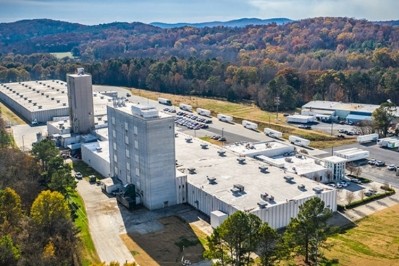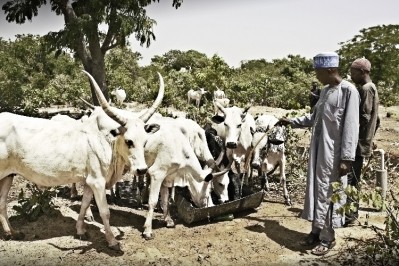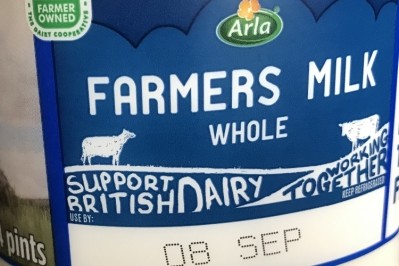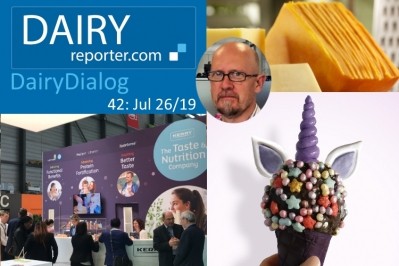Dairy Dialog podcast 50: Claroty, Kerry and Arla Foods
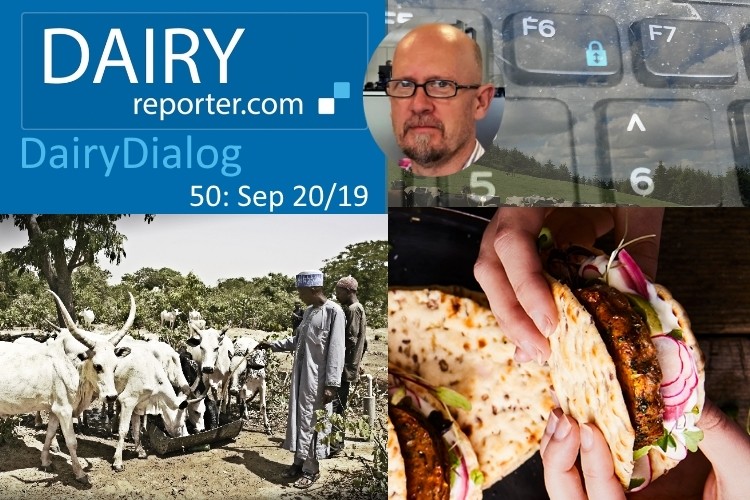
We highlight food security and the threat of cyber attacks in the food and beverage space, with Dave Weinstein, CSO of Claroty; we talk to Rebecca Fitzgerald, marketing manager for plant protein, at Kerry Europe, about their new Radicle products; and we learn about Arla’s assistance in developing the dairy industry in Nigeria with Tim Ørting Jørgensen, executive vice president and head of Arla Foods International. And we have our weekly look at the global dairy markets with Liam Fenton from INTL FCStone.
Cyber risks to food companies
A new white paper from the University of Minnesota Food Protection and Defense Institute on food and cybersecurity, Adulterating More Than Food: The Cyber Risk to Food Processing and Manufacturing, has potentially serious implications for food companies of all sizes, including those in the dairy industry.
The report says companies’ critical manufacturing technologies, and their customers are at risk from cyberattacks, adding that vulnerabilities are ‘plentiful and many are easy to exploit.’
The report says the consequences of exploiting them are real, as has been demonstrated by actual attacks that have destroyed equipment, caused environmental damage, and precipitated power outages, and even demonstrated the potential for injuring workers.
It says there are people with the motivation, tools, and skill necessary to carry out attacks, which are becoming more powerful.
The report adds that the food industry not only has many of the same vulnerabilities as other sectors, but also other unique ones. The dairy industry, in some places, has suffered from issues of adulteration, and the report notes that, “The food industry is already a frequent target of motivated criminals. For example, transnational criminal organizations (TCOs) are heavily involved in large-scale food-re lated crimes such as counterfeiting, economically motivated adulteration, theft and resale, and smuggling.”
Dave Weinstein, chief security officer Claroty, a company created to secure the safety and reliability of industrial control networks, said, “While it doesn't receive many headlines, the cyber risk to the food and beverage manufacturing process is a serious one. Not only are most of the industrial control systems behind the manufacturing process inherently insecure, but many companies in this industry are embracing aggressive digital transformation initiatives.
“These efforts are great for productivity and efficiency, but they also introduce more connectivity to the manufacturing network, thus subjecting it to both commodity malware from the IT network and targeted threats.”
The Claroty Platform is an integrated set of cyber security products that provides visibility, cyber threat detection, secure remote access, and risk assessments for industrial control networks (ICS/OT).
Radicle by Kerry launches with ambition to lead the industry to produce better plant-based food
Kerry Taste & Nutrition this week launched Radicle by Kerry, which it says is the broadest portfolio of plant-based food solutions in the market.
It includes a range of taste, nutrition and functional solutions which can be paired with plant-based proteins and dairy alternatives.
Radicle by Kerry offers customers an integrated solution to create nutritionally better plant-based foods with authentic tastes and cleaner labels.
While the global plant-based food market represents an opportunity for the food industry, Kerry said that many operators and manufacturers are unsure how to get ahead, or get started, in delivering the plant-based foods consumers want.
Kerry said its history of work in the field means it can create products that perform and are nutritionally optimized through authentic taste, clean label, using recognizable ingredients, gluten free options, or reducing fat, sugar or salt.
Malcolm Sheil, president and CEO, Kerry Europe & Russia, said, “There is no doubt that there continues to be a mainstream consumer shift towards a flexitarian diet. Consumer preferences, from restaurants to retail, have never seen such dynamic change, but for the food industry these developments are as challenging as they are exciting.
Radicle by Kerry brings together our dairy and meat heritage and our technology, processing and applications expertise, with over 20 years of experience in the plant-based food space. It asserts Kerry’s position as a trusted partner for the food industry in leading to better plant-based food, by offering the industry’s broadest portfolio of taste, nutrition and functional solutions.”
Darren O’Sullivan, plant-based food director, Kerry Europe, said, “Radicle by Kerry represents a significant launch for our business. The depth of what we can offer customers is unique in the marketplace. Whether customers seek meat alternatives or dairy alternatives, we offer a total solution with the ability to deliver taste, texture, nutrition and functionality. We look forward to innovating with customers right across the foodservice and retail channels to create new and exciting dishes for the growing flexitarian consumer group.”
Radicle by Kerry launches initially in Europe and North America and will roll-out globally in the coming months.
Arla commits to sustainable dairy sector in Nigeria
In a new public-private partnership in Nigeria, dairy cooperative Arla Foods is developing a long-term sustainable dairy industry and local dairy sector in Nigeria by helping 1,000 small scale farmers create better livelihoods while strengthening its business in the country.
Already active in existing development projects within the Nigerian dairy industry, Arla has signed a new Memorandum of Understanding with Kaduna State and the Nigerian government.
The State and the Government will offer 1,000 nomadic dairy farmers permanent farm lands with access to water, with Arla becoming the commercial partner that will purchase, collect, process and bring the local milk to market.
Nigeria’s population – set to reach close to 400m by 2050 – is among the fastest-growing of any nation in the world, and there is a growing consumer demand for affordable nutrition in the country. The new public-private partnership entered into by Arla is part of Arla’s business strategy to meet consumer demand in Nigeria through a balance between development of the local dairy sector and imported milk and dairy products.
Tim Ørting Jørgensen, executive vice president and head of Arla Foods International, said, “With demand for nutritional dairy products increasing amongst Nigeria’s fast-growing population, there is a clear opportunity and need to support the development of the local dairy industry to help meet this demand.
“As a company with a history of successful collaboration on local dairy development projects and a long-term commitment to our Nigerian consumers, customers and partners, we are delighted about this new partnership, because it will make a real difference in many farmers’ businesses and lives.”
Public and private investments
Kaduna State and the Nigerian Government are committing to improve the structural conditions for the nomadic farmers. Instead of continuously moving in search of grazing areas and water, land will be set up for farmers to permanently base themselves and have opportunities to expand their farms. Securing the infrastructure such as roads, power and water, which are necessary to process and bring the milk to market, is also part of the commitment.
The project will primarily be funded by loans provided by the Central Bank of Nigeria and guaranteed by the local state. As the commercial partner, Arla will invest in establishing milk collection centers.
The partnership in Nigeria builds on a collaboration initiated in 2016 with Kaduna State, the Nigerian Government, the NGO Care, the Danish Agricultural and Food Council, the local cooperative MILCOPAL and the Nigerian pastoralist organization Coret.
‘Looking long term’
The Nigerian dairy industry is currently able to supply less than 10% of the country’s current demand for dairy products, a gap that is increasing exponentially as the population grows.
Most Nigerian dairy farmers are small scale and most milk collection consists of milking the cows by hand into small open bowls or buckets. If the milk is not consumed in the farmer’s own household, it usually doesn’t travel farther than the nearest town market. Preventing the milk from spoiling in the heat is a big challenge.
“Bringing local milk into our product portfolio is part of the way we believe that our business will be long-term successful in Nigeria. We will only succeed in growing local farmers’ incomes, Nigeria’s dairy sector and achieving Arla’s ambitions in West Africa if the project and its activities are commercially viable. This is a great example of business and development going hand in hand to ensure long-term sustainable solutions that are built to last,” Jørgensen said.
